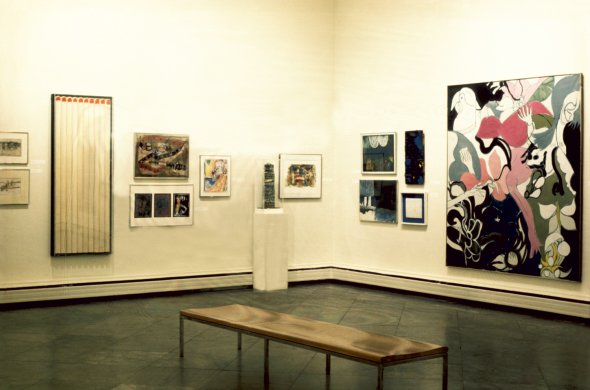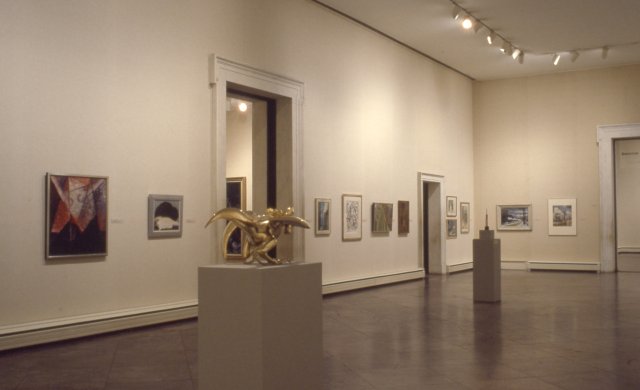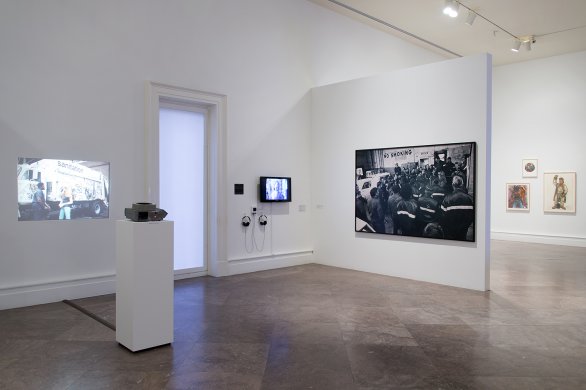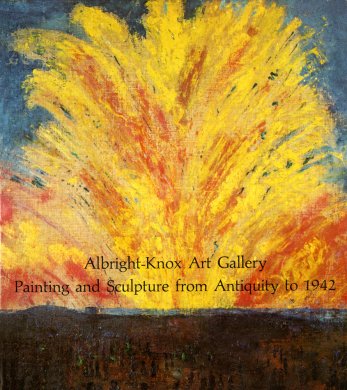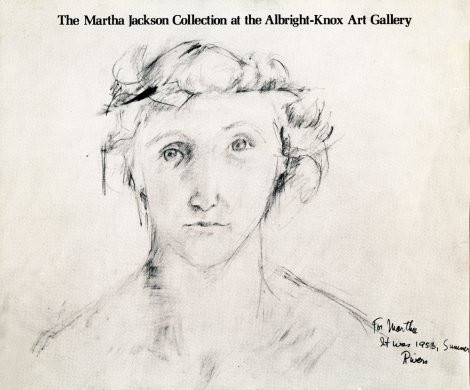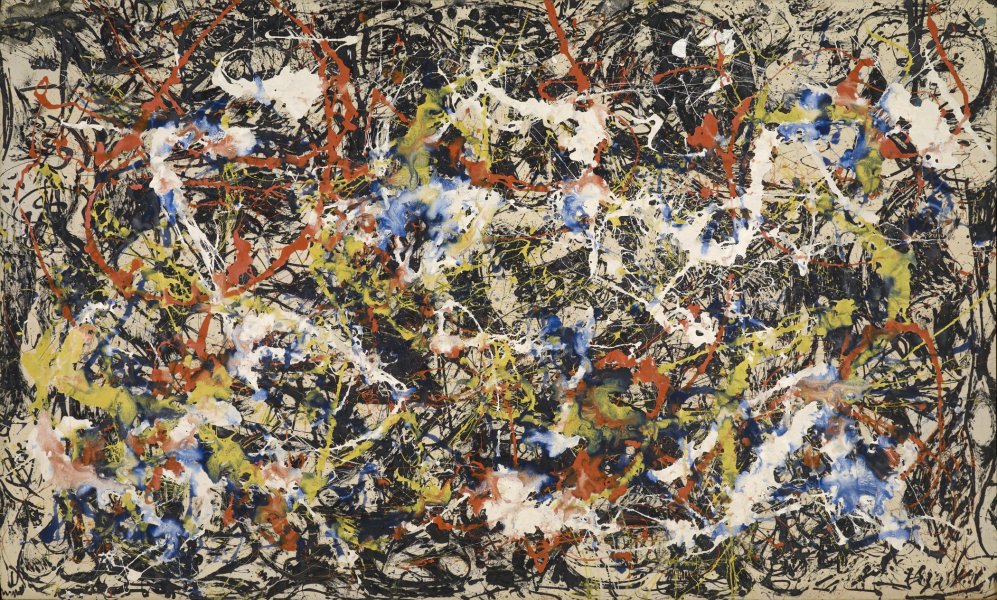Jackson Pollock
American, 1912-1956
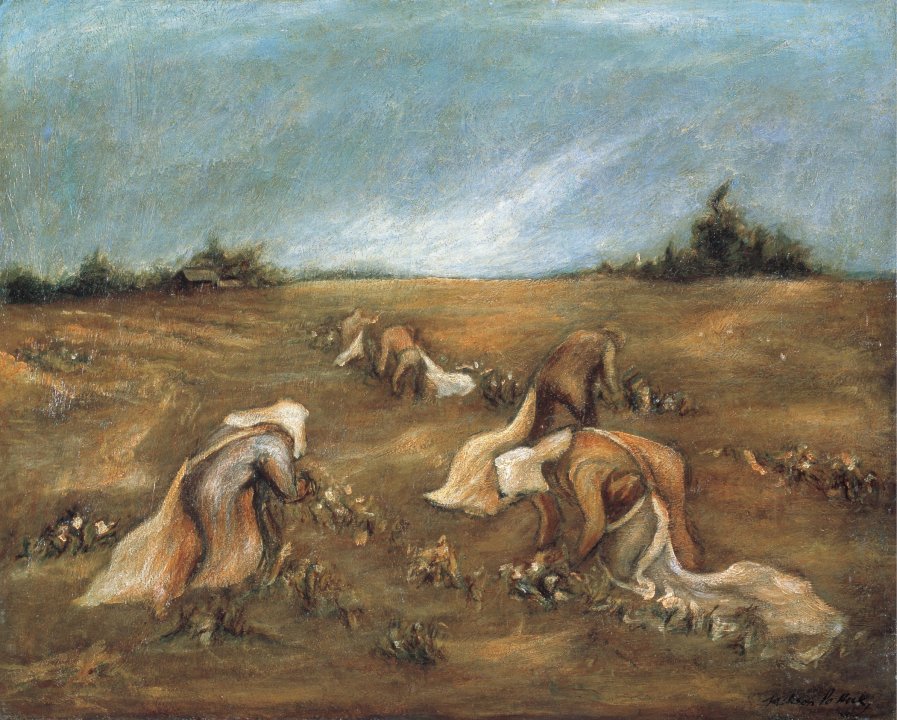
Cotton Pickers, ca. 1935
Artwork Details
Materials
oil on canvas
Measurements
support: 24 x 30 inches (60.96 x 76.2 cm); framed: 26 5/8 x 32 5/8 x 2 7/8 inches (67.63 x 82.87 x 7.3 cm)
Collection Buffalo AKG Art Museum
Credit
The Martha Jackson Collection at the Buffalo AKG Art Museum, 1974
Accession ID
1974:8.29
Paintings like this one were essential to making Jackson Pollock the artist he would become. Pollock's most important teacher during his years studying at the Art Students League in New York was the American Regionalist Thomas Hart Benton. Benton was a declared "enemy" of abstract modernist painting, but also a passionate advocate for Leftist political aims. His stylized, almost sculptural, figurative paintings endeavored to bring grandeur and gravitas to everyday American experience. Pollock would later credit his move to abstraction to Benton's outsized influence; "my work with Benton was very important as something against which to react very strongly, later on; in this, it was better to have worked with him than with a less resistant personality.”
Workers picking cotton in the Depression-era South was a subject both Benton and Pollock depicted with sensitivity in the 1930s. In Cotton Pickers, Pollock’s palette of earth tones implies a direct connection between the workers and the soil. During his early years living in New York, Pollock would return to his native California, often by hitchhiking or hopping on trains, and he sketched the passing towns and landscapes. It was likely a memory of one such journey that inspired Cotton Pickers.
Label from Overtime: The Art of Work, March 8–May 17, 2015
